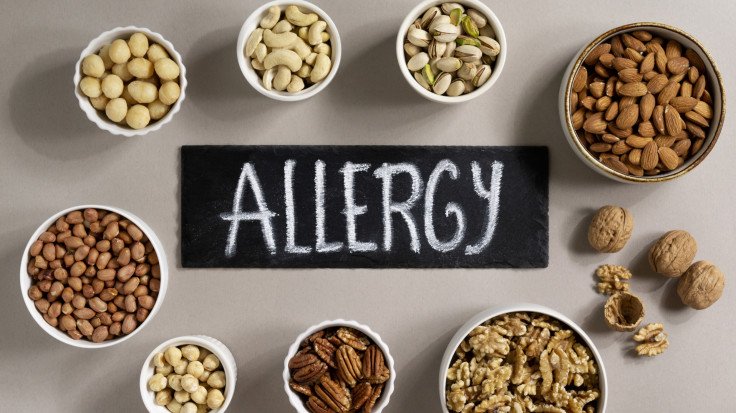FDA Approves First Drug To Treat Food Allergies: Here's What You Need To Know

The U.S. Food and Drug Administration (FDA) has approved Xolair, a medication initially designed for asthma, to be used in the treatment of food allergies to prevent severe reactions. The approval extends to patients as young as one-year-old.
According to a Centers for Disease Control and Prevention (CDC) report, around 8% of children in the United States have a food allergy. Food allergies can manifest in the form of symptoms such as digestive problems, hives or swollen airways. In some people, exposure to allergenic foods can result in potentially life-threatening reactions, commonly referred to as anaphylaxis.
Currently, there is no cure for food allergies. People with food allergies are advised to strictly avoid allergenic food. In case of accidental exposure, prompt administration of epinephrine helps to manage anaphylaxis.
Xolair was approved for treating moderate to severe persistent allergic asthma in 2003. Additionally, it was approved for the treatment of chronic spontaneous urticaria and chronic rhinosinusitis with nasal polyps in certain patients.
"This newly approved use for Xolair will provide a treatment option to reduce the risk of harmful allergic reactions among certain patients with IgE-mediated food allergies," said Dr. Kelly Stone, associate director of the Division of Pulmonology, Allergy, and Critical Care in the FDA's Center for Drug Evaluation and Research.
Xolair is still not approved for the immediate emergency treatment of allergic reactions, including anaphylaxis. People with allergic reactions must continue to avoid the foods that cause them reactions.
"While it will not eliminate food allergies or allow patients to consume food allergens freely, its repeated use will help reduce the health impact if accidental exposure occurs," Stone said.
The current FDA decision is based on a study funded by the National Institutes of Health, the findings of which are expected to be published later this month. According to the study that involved 168 participants, Xolair allowed approximately 68% of them with peanut allergies to tolerate around 600 milligrams, equivalent to about 1/2 teaspoon, of peanut protein. This is in comparison to about 6% of those who received placebo injections. The researchers also noted comparable outcomes in the case of allergens such as tree nuts, milk, eggs, and wheat.
Xolair contains monoclonal antibodies that function by binding to immunoglobulin E (IgE), the specific antibody responsible for triggering allergic reactions. This binding action prevents IgE from attaching to its receptors.
Patients are advised not to take Xolair in case of a history of severe reaction to the drug or any of its components. "The most common side effects of Xolair observed included injection site reactions and fever. Xolair comes with certain warnings and precautions, such as anaphylaxis, malignancy, fever, joint pain, rash, parasitic (worm) infection, and abnormal laboratory tests," the FDA news release stated.



























